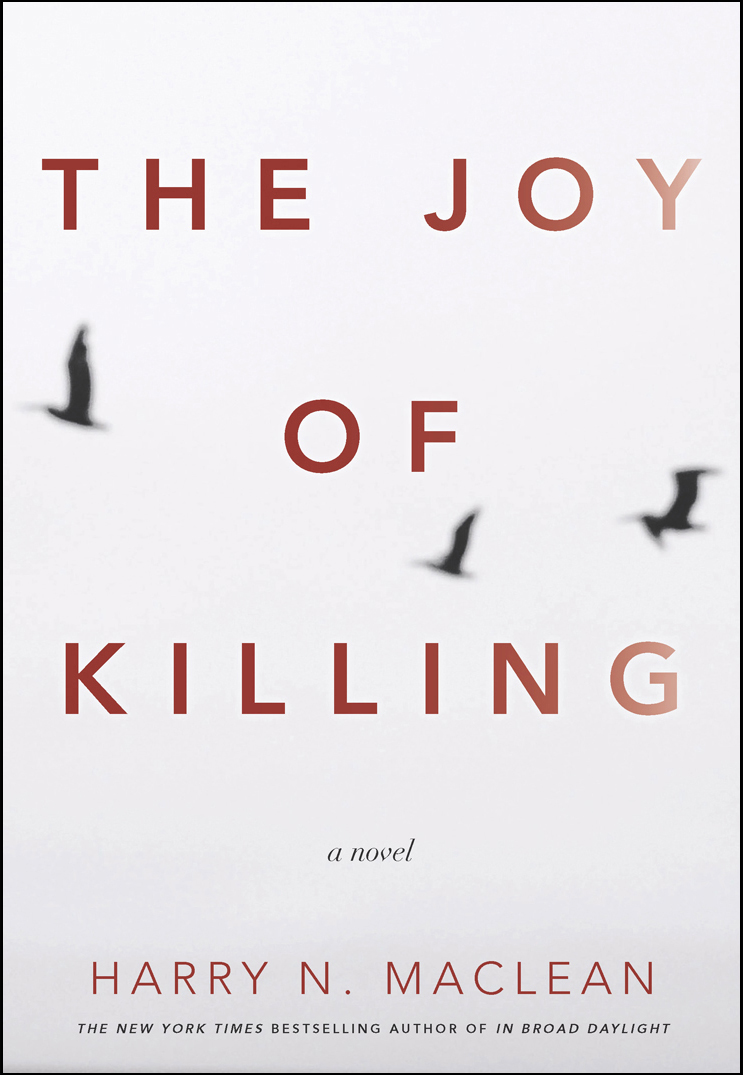
The Joy of Killing
A Novel
- اطلاعات
- نقد و بررسی
- دیدگاه کاربران
نقد و بررسی

Starred review from May 18, 2015
A man’s desperate struggle to recapture his past propels this brilliant first novel from Edgar Award–winning true crime writer MacLean (In Broad Daylight). The unnamed narrator, who’s spending the night alone in a lakeside house, is trying to type up his significant memories on an old Underwood. He’s sure that in 1958 he had a wild sexual encounter at age 15 with a girl on a train to Chicago, on his way home from prep school in Massachusetts. He also recalls the drowning death of a teenage friend in the lake, and an afternoon when he and another boy were lured to an older man’s rented room—but he also realizes that his recollection is undependable, edited for his comfort. Amid fragmented images of violence, he strains to understand what really happened to him. Though the narrator insists that nothing matters, truth obviously does matter, and MacLean skillfully takes readers along as the narrator spins and stumbles through a tangle of disturbing meditations on innocence and guilt. Agent: Paul Bresnick, Paul Bresnick Literary Agency.

May 1, 2015
A middle-aged man, alone in a windswept lake cottage, considers aspects of his past, real and imagined, as he attempts to write the story of his life. In MacLean's (The Past is Never Dead, 2009, etc.) dreamlike novel, the unnamed narrator, a former professor and novelist, sits typing on a dark night, occasionally distracted from his memories by rattling noises in the house and the slow journey of the moon across the sky. He seems to want to write his autobiography, centering around three main events of his early adolescence: a friend's betrayal, a death, and a sexual conquest. But he readily admits that, other than some distinct fragments and details, memory is subjective and untrustworthy. As the stories slowly unfold, frequently interrupted by returns to the present, it becomes clear that, while personal experience is the key to this tale, the narrator is also caught up in a deeper philosophical contemplation about human nature, man's propensity for violence, and the choices some make that violate society's "civilized" rules and lead to censure and punishment. MacLean's writing is lyrical, ebbing and flowing like a deep riptide that conceals the danger beneath; there is something unsavory and even panic-inducing about being pulled inside his tale. The narrator is not remotely reliable or sympathetic, and when the fragments finally fall into place and the true memory takes shape, it's a rather disappointing climax. Yet it's almost impossible to resist the pull of the tide. And perhaps the "solution" to the mystery is completely beside the point. Instead, the novel centers on how the line between dark fantasy and reality is always a fine one, how "the narratives of people's lives are what hold them together," not the truth. A dizzying and delirious meditation on desire, violence, guilt, and philosophical justification.
COPYRIGHT(2015) Kirkus Reviews, ALL RIGHTS RESERVED.




دیدگاه کاربران